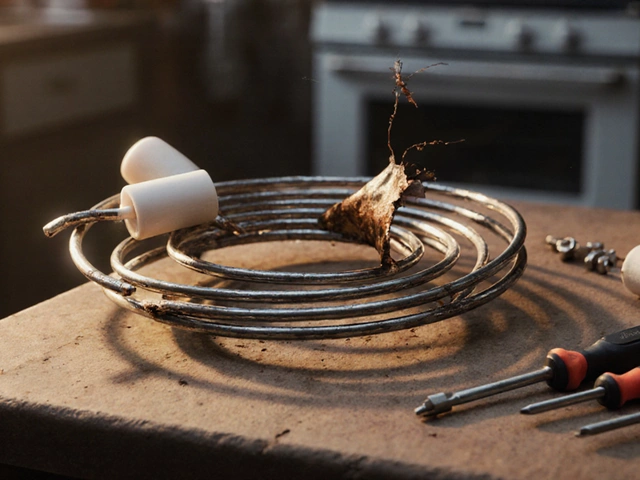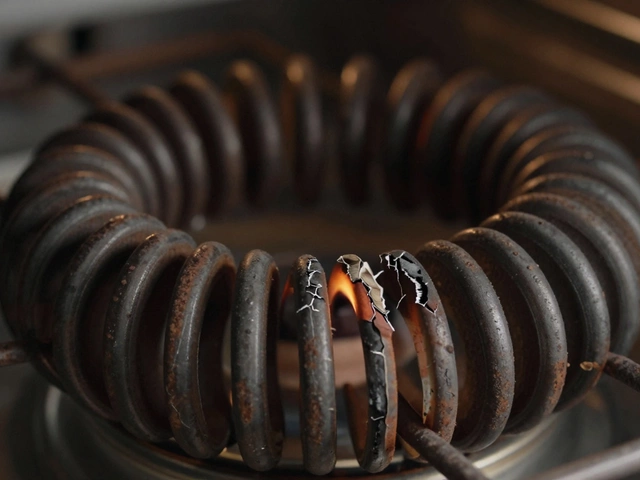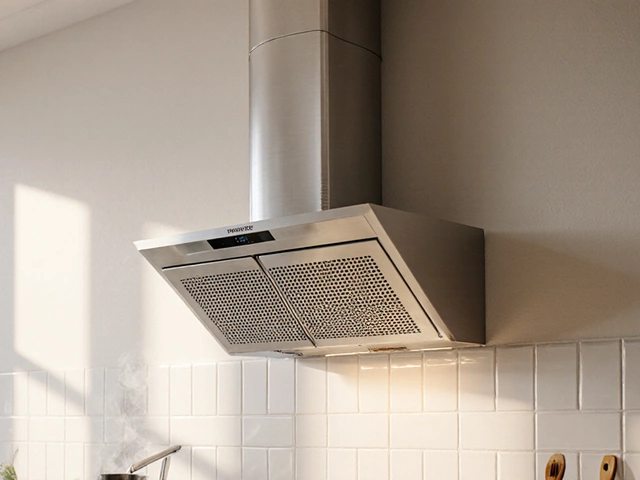Extractor fans often sit unnoticed, quietly working away to keep our homes free from moisture and unwanted odors. It can be easy to forget they exist until something goes wrong. Whether it's in the kitchen or bathroom, these fans play a critical role in maintaining healthy indoor air quality.
The good news is that with some simple maintenance, you can keep your extractor fan running smoothly for years. Neglecting this vital upkeep, however, can lead to reduced efficiency or even costly repairs down the road.
This article will delve into why maintaining your extractor fan is indispensable. From basic cleaning techniques to recognizing when it might be time to call in a pro, we've got you covered to ensure your extractor fan remains in top-notch condition.
- Understanding the Role of Extractor Fans
- Why Regular Maintenance Matters
- Signs Your Extractor Fan Needs Attention
- DIY Maintenance Tips
- When to Call a Professional
Understanding the Role of Extractor Fans
Extractor fans, often an unsung hero in our homes, are designed for a crucial function: maintaining indoor air quality. These fans effectively draw out excess moisture, smoke, steam, and unpleasant odors, creating a more comfortable and healthier environment. Imagine cooking a spicy curry or taking a steamy bath; without an extractor fan, the resulting humidity and smells would linger, potentially leading to mold growth or persistent odors. Their utility extends beyond just comfort, as they play a preventative role against the insidious effects of mold and mildew, which thrive in moist settings and can cause significant health issues if left unchecked.
Most modern homes have extractor fans installed in key areas prone to moisture, like kitchens and bathrooms. In the kitchen, these fans remove airborne grease, combustion products, fumes, smoke, odors, and heat by ventilating the air to the outside. This is crucial because kitchens tend to release pollutants and moisture, which can compromise the air quality. On the other hand, bathroom fans are tasked with preventing moisture buildup after baths or showers, essential in averting the risk of mold and enhancing the longevity of your bathroom fixtures.
According to the Environmental Protection Agency (EPA), "Good ventilation is key to ensuring a home's air quality and reducing adverse health effects from indoor air pollutants," highlighting the vital role such fans play.
The design of an extractor fan is simple yet effective. By harnessing a motor-driven impeller or blade, the fan draws air out of the room, thus lowering the air pressure inside. This causes fresh, outside air to enter through gaps and vents, effectively cycling the air in the room. Extractor fan maintenance is paramount to keeping this cycle smooth; otherwise, blockages or mechanical failures can lead to decreased performance or increased energy costs. It's a system that requires harmony; every part must operate flawlessly for the whole to work as intended.
An interesting facet of extractor fans is their versatility. Some advanced models come equipped with sophisticated sensors that detect humidity levels, automatically activating when necessary. This feature not only conserves energy but also ensures optimal air quality round the clock. Such innovations continue to evolve, making them smarter, quieter, and more energy-efficient. Understanding the fan upkeep ensures these features operate at their best, thus extending the fan’s life and maximizing its efficiency.
Why Regular Maintenance Matters
Many households rely heavily on extractor fans without giving much thought to their upkeep. However, regular maintenance is crucial for several reasons. To start with, it ensures the fan operates at peak efficiency, saving you money in energy costs. A fan that's clogged with dust and grease will have to work harder to expel air, leading to increased energy consumption. Not to mention, the extra strain on the motor could shorten the lifespan of the fan.
An often-overlooked benefit of regular maintenance is the improvement in air quality it provides. When a fan is clean and functioning properly, it effectively removes moisture and odors, preventing the buildup of mold and mildew. This not only keeps your living space smelling fresh but also minimizes health risks associated with damp environments. Mold allergies, for instance, can trigger respiratory issues and other health problems. Keeping your fan clean ensures it continues to protect your home’s air quality.
Addressing mechanical issues before they escalate is another compelling reason to keep up with maintenance. Spotting early signs of wear and tear, such as unusual noises, reduced airflow, or a malfunctioning switch, allows you to address minor repairs before they become major issues. According to Martin Cooper, a leading HVAC technician,
“Regular maintenance can prevent more than 70% of breakdowns from ever occurring.”This is a statistic that highlights the importance of being proactive when it comes to extractor fan care.
While some may view maintenance as a hassle or unnecessary expense, the long-term savings and benefits far outweigh the costs. The price of replacing an extractor fan can be significantly higher than maintaining it. Therefore, a small investment in regular upkeep can prevent the headache and cost of replacement.
Additionally, manufacturers often require regular maintenance as part of their warranty terms. Failing to keep up with suggested care can void any warranty, meaning you could be left footing the bill for repairs that would have otherwise been covered. Following the suggested service intervals ensures your warranty remains valid, protecting you from unforeseen expenses.
Incorporating these practices into your household routine could lead to fewer surprises and more savings. Taking an hour every few months to clean or check your extractor fan can lead to years of reliable use, ensuring your device continues to perform its essential role effectively. To make the process easier, develop a simple maintenance schedule and adhere to reminders as best as you can.
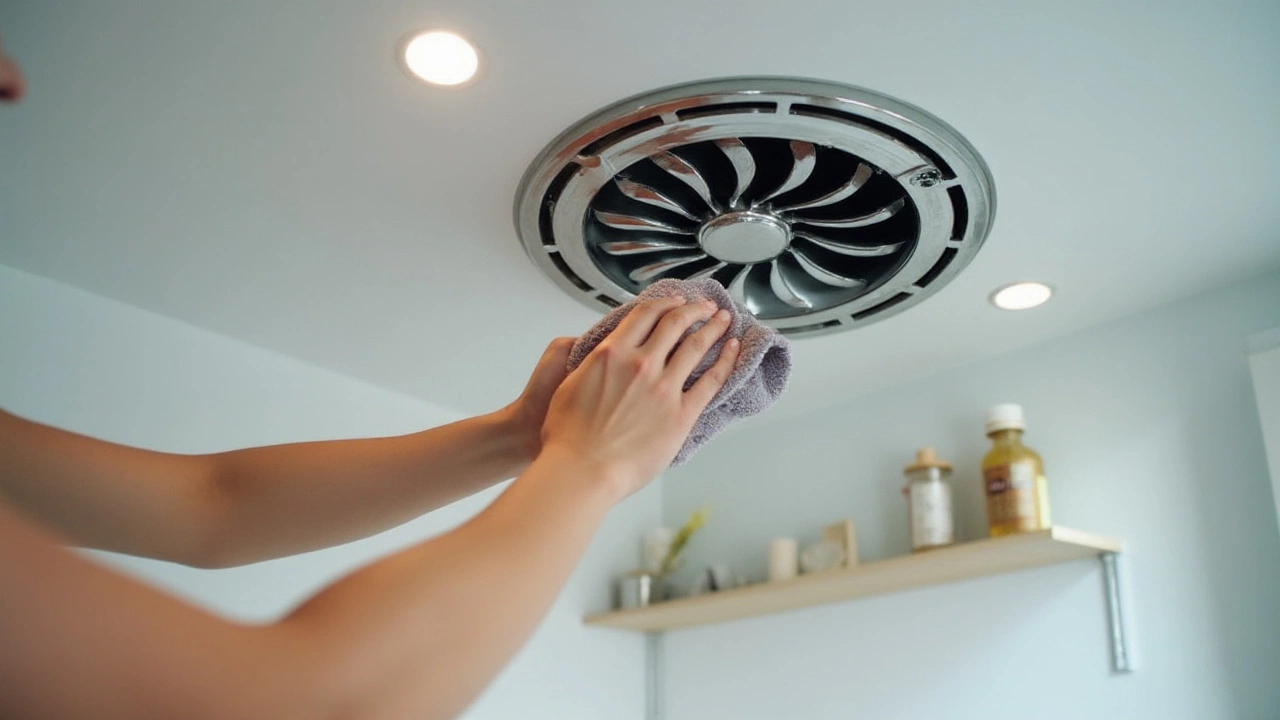
Signs Your Extractor Fan Needs Attention
Extractor fans are often the unsung heroes of our kitchens and bathrooms, tirelessly working to remove steam, smoke, and odors. Yet, they can start showing signs of distress, indicating they need a bit of TLC. Recognizing these signals swiftly can prevent minor issues from ballooning into major problems. One tell-tale sign that your extractor fan might be crying for attention is unusual noise. A well-functioning fan should operate fairly quietly. If your fan starts making grinding, clicking, or buzzing noises, it could be due to worn-out bearings or loose components. These sounds are not just annoying—they might be a precursor to more serious mechanical failures.
Another key indicator is reduced efficiency. If you notice that your fan isn't clearing steam or odors as effectively as it used to, airflow could be obstructed. Clogged filters are a common culprit. For instance, kitchen extractor fans often accumulate layers of grease that block air passage. This scenario can significantly reduce the overall performance of the fan and strain its motor. Keeping an eye on the moisture build-up in your bathroom or kitchen is crucial. If condensation is persistent, it might be time to inspect your fan.
Extractor repair might also be needed if your fan is overheating. This can be a serious issue since it poses both a fire risk and the likelihood of a complete breakdown. Overheating is often due to dust accumulation on the motor or in the fan ducting. Regular checks and cleans can often nip this in the bud. Visibility within the fan housing can tell a lot too. A simple flashlight inspection might reveal burnt or frayed wires, a common sign of electrical stress and a red flag that requires prompt professional intervention.
Sometimes the signs are not physical sound or sight, but the absence of performance altogether. If your extractor fan has entirely stopped working, first check the obvious, like circuit breakers or power connections. However, an extended lack of function can often point towards bigger electrical faults. Here is where a call to a professional becomes non-negotiable, ensuring safety and proper diagnosis.
"Regular maintenance and timely identification of issues help in prolonging the lifespan of your home appliances," says John Douglas, a reputed household appliance expert.
Lastly, strange odors emanating from the fan itself shouldn't be ignored. These smells might suggest electrical troubles or even mold growth caused by trapped moisture, which in turn affects indoor air quality. Detecting these issues early can save costs and promote safer, healthier home environments. A proactive approach, paired with a regular maintenance routine, can help keep these signs at bay. By staying alert to these issues, you ensure your extractor fan serves its purpose efficiently for years to come.
DIY Maintenance Tips
Keeping your extractor fan maintenance on track doesn't necessarily require a call to the professionals every time. With a handful of common household tools and a little know-how, you can ensure your fans remain in excellent working condition. Begin by understanding the basics — the fan's primary job is to draw out unwanted air and replace it with fresh air, crucial for both comfort and health. Over time, dust and grime can accumulate, slowing the fan's performance. To prevent this, a regular cleaning regimen is essential. Start by making sure that the power is off to avoid any accidents.
For most standard fans, the first step is removing the cover, which might be secured by screws or clips. Once removed, you’ll notice dust and possibly some grease buildup. Warm, soapy water works wonders for cleaning the cover. Let it soak for a bit before scrubbing off the residue. Next, look at the blades; it’s crucial they’re free of any debris. A simple mix of baking soda and water can clean the blades effectively. Gently wipe them with a soft cloth, ensuring not to bend them, as this could affect balance and performance.
Check Connections and Inspections
After cleaning, examine the electrical connections and fan mounting. Loose connections can reduce efficacy and, in some severe cases, pose a hazard. If you're confident with a screwdriver, tighten any loose screws and inspect for signs of wear on the wires. Keep an eye out for frayed cables — these need immediate professional attention for safety's sake. Rotating or replacing a noisy fan might also solve that annoying buzz, signaling an overworked motor. Maintaining a regular inspection schedule can often mean the difference between a minor fix and a costly repair.
“Routine maintenance is the key to longevity and efficiency,” says John Stanford, an expert in home appliance care. “A little time spent now can prevent expensive repairs and ensure your extractor fan functions optimally.”
Lubrication and Regular Testing
Every fan, depending on the usage, might need a touch of lubrication. Most modern fans don’t require this, but older models could benefit from a few drops of machine oil on bearings to ensure smooth operation. Listen for odd sounds that indicate friction, which is easily sorted out by proper lubrication. Test the fan periodically because irregular usage could result in the system seizing up over time. Ensuring regular use can keep components flexible and in working order. Do remember, time spent on these fan upkeep routines not only extends the unit’s life but also keeps energy bills from spiking unexpectedly due to inefficiencies.
Completing these steps means your extractor should run smoothly, but remember each fan can be a little different, so consult the user manual specific to your model for any specialized instructions. With regular attention to these details, you’ll ensure a healthier and more comfortable home environment.
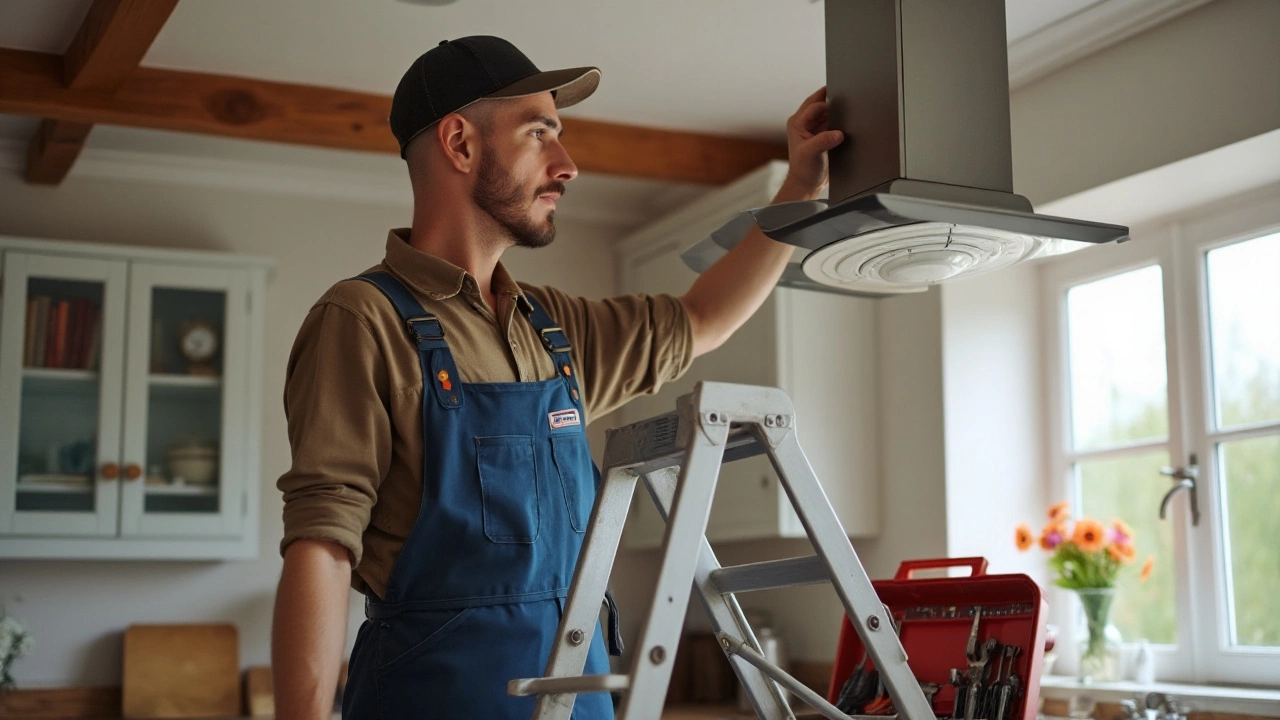
When to Call a Professional
While regular extractor fan maintenance can be performed by any handy individual, there are certain situations where you'll want to turn to a professional for help. For instance, if you detect strange noises such as grinding or rattling emanating from the fan, it might indicate that internal components have become misaligned or worn. These sounds are not just annoyances; they can signal deeper mechanical problems that, if neglected, might lead to more extensive damage over time.
Another vital scenario is unexplained reduction in the fan's ventilation performance. If you notice that the air isn't being cleared as efficiently as before, it could be due to an obstruction, faulty wiring, or even a failing motor. In such cases, fixing the issue without proper tools and expertise can sometimes cause more harm than good. Professionals have the necessary knowledge and equipment to diagnose and repair these problems effectively.
Additionally, understanding safety regulations and maintaining compliance is crucial. Wiring and electrical components pose risks if mishandled. Many countries have specific codes related to fan installation and maintenance, ensuring they operate safely and efficiently. According to a report from the Home Ventilation Institute, "Improper installation or maintenance of ventilation equipment can lead to health and safety hazards." This highlights the importance of consulting a skilled technician to handle any intricate electrical issues.
For those facing persistent or recurring issues, it may be time to evaluate the possibility of replacing the fan entirely. Replacing an extractor fan isn't merely about removing the old unit and installing a new one; it requires understanding the energy requirements, ductwork needs, and possibly upgrading to a more advanced system. A professional will help you assess the condition of your existing setup and provide recommendations tailored to your home's specific needs.



